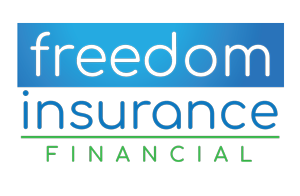Introduction
We all know that saving money is important – and we all know that saving money can be hard. So why not make sure the money you do save is working as hard as possible for you? Welcome to the world of high yield – or APY – savings account, some of which offer up to 25 times the return of a conventional savings account. Let’s look at how.

I’ve collected a few key factors to look for and some of the most important pros and cons, plus some of the best uses, for high yield savings accounts. Here they are:
High yield savings accounts: what to look for
- Interest rate
- Minimum deposit or balance required
- Fees
- Accessing your money
Pros
- The higher rate
- Ease of setup and access
- Federal insurance
Cons
- Different accounts at different banks
- Limited features of online banks
Best uses
- Short-term savings for large purchase
- Store surplus cash from checking account
- Emergency fund
Now let’s take a deeper dive into each of these important facets of high yield savings accounts.
High yield savings accounts: what to look for
The following factors should weigh heavily in your choice of a high yield savings account.
Interest rate – this should go without saying, because the whole reason you choose a high yield savings account is for the higher interest rate, right? But one important thing to check on is whether the rate you get for opening your account is promotional. And if it expires after a certain length of time, what does your rate go down to? Make sure to look at several different banks to make sure you’re getting the lowest rate for the longest period of time.
Minimum deposit or balance required – Some banks will require that you deposit a minimum amount of money to open your account or keep a minimum balance in order to maintain your higher interest rate. If that is not a problem, then it’s not a problem. But here’s the deal: if it will be a challenge for you to maintain the minimum balance, then a high yield savings account may not be your best option.
Fees – Watch out for unexpected fees related to your account. And if the bank charges fees for your high yield savings account, is there a way you can avoid them? For example, you can sometimes avoid fees by keeping a minimum account balance and by staying within an allocated number of withdrawals per month.
Accessing your money – Once your account is open, how difficult will it be to access your money? Can you, for example, transfer from your high yield savings account back to a checking account or to other accounts you hold at brokerages or other banks? Will you have an ATM card, can you write checks against the account or do all transactions need to be electronic?
Depending on how frequently you believe you’ll need to move your money around or use your account for purchases, this could be a huge consideration.
Pros
The higher rate –This is the main advantage of a high yield savings account, with some banks offering an interest rate 20 or 25 times higher than traditional banks.
Ease of setup and access – Most banks offering high yield savings account are online only options, which means you can set up and fund your account from your desktop or smartphone, usually very quickly and easily.
Federal insurance – Just like any savings account at any American bank, a high yield savings account comes back with the federal assurance that your money is safe, thanks to the Federal Deposit Insurance Corporation. Any bank that offers you a high yield savings account also should promote the fact that it is an FDIC member.
Cons
Different accounts at different banks – Most people are used to setting up a checking and savings account through the same bank. This made life much easier when banking was a brick-and-mortar business, but with the rise of so many online-only banking institutions, it’s no longer necessary. You can easily set up transfers and connections between your high yield savings account and any other banks you may use. It’s just a different way of banking.
Limited features of online banks – This ties back to the concept that you may need to do business with multiple banks to get all the services you want. A bank that offer you a high yield savings account may not offer checking accounts, for example, along with ATM cards or other bells and whistles.
Best uses
So what should you use a high yield savings account for? Here are some of the most common and sound uses.
Short-term savings for large purchase – If you’re saving up for a home down payment or the vacation of a lifetime, it’s not unreasonable to want higher returns than a typical savings account can offer. But since these are savings you’ll access in the short term – unlike a retirement account, for example – you want to make sure you’re investing in something that isn’t at risk of losing value. This is where a high yield savings account can be a great choice – earning you more interest without risk of losing your principal.
Store surplus cash from checking account – If you tend to have cash left over in your checking account each month, it’s a great idea to roll it into a high yield savings account that earns interest for you, rather than sitting in your checking account earning no interest at all.
Emergency fund – Many financial experts recommend keeping three to six months’ worth of income in an easily accessible emergency fund. A high yield savings account can be an ideal place to store your emergency fund and watch it earn additional interest along the way.
Conclusion
A high yield savings account is a great place to store short-term savings and earn more money than through a traditional savings account. Your principal is protected, and though a high yield savings account won’t earn you as much interest as other riskier investments, it’s a low-risk alternative that marries immediate liquidity with a higher-than-average return.
If this sounds like something you’d like to know more about, please reach out to us at Freedom Insurance Financial. Our team stands ready to help you find the savings vehicle that best meets your needs.
